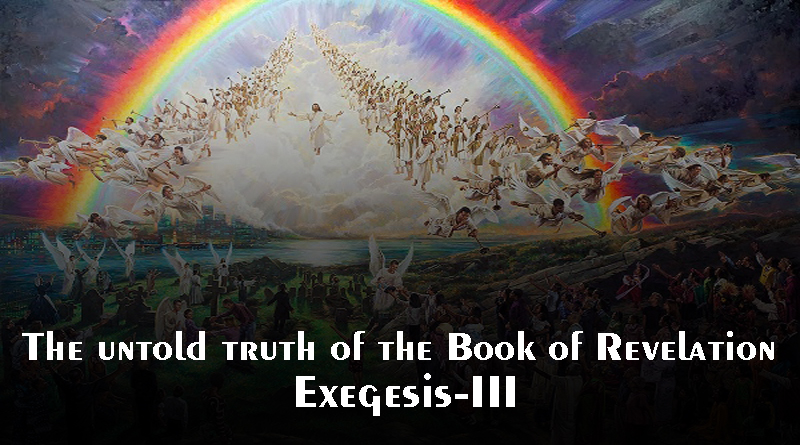The untold truth of the Book of Revelation: Exegesis-III
Contribution: Catholic Bishops Commission for Catechetics
Translation: Suzanna Joseph
“Happy is the one who reads this book, and happy are those who listen to the words of this prophetic message and obey what is written in this book! For the time is near when all these things will happen.” (Revelation 1:3)
“I, John, solemnly warn everyone who hears the prophetic words of this book: if any add anything to them, God will add to their punishment the plagues described in this book. And if any take anything away from the prophetic words of this book, God will take away from them their share of the fruit of the tree of life and of the Holy City, which are described in this book.” (Revelation 22:18-19)
Also read: The untold truth of the Book of Revelation: Exegesis-I
Also read: The untold truth of the Book of Revelation: Exegesis-II
Origins of Revelation: Saint John the Apostle was exiled to the Island of Patmos by the Emperor Domitian, this is where the book of revelation originates from. According to Tertullian, a Christian apologist, in the Roman Colosseum Domitian orders his men to throw Saint John the apostle into a cauldron of boiling oil. However John emerges unharmed. The entire audience in the Colosseum (an ancient roman stadium) witnessed this miracle and converted to Christianity. After this the Emperor exiled John to the Island of Patmos. This Island is known as a Sacred Island therefore people pay pilgrimage by traveling to Patmos. It is 762km away from the coast of Turkey and situated near the Aegean Sea with a total area of 34.05 km squared. From Athens, city in Greece, an 8 hour ferry ride is a common route taken by pilgrims. A small Greek Orthodox Church which has been dedicated to Saint Anne, mother of Blessed Virgin Mary. ‘The Cave of Revelation’, an important landmark, is where Saint John wrote about his visions and on top of this cave is a fort which was his hermitage. Today two hermits reside among these dwellings.
This island was completely barren at the time of John’s exile. Tradition holds that the banished criminals of Rome were sent here to serve out their prison terms in harsh conditions during the Imperial period. Roman authorities thought that the new religion was gaining importance compared to Caesar’s claim to his own sovereignty. The Roman Empire demanded preeminent loyalty to the state and Caesar. The early Christians, who didn’t bow or worship Caesar, were therefore seen as disloyal to both. This suspicion became the roots of early Christian persecution. Since Saint John the apostle was the leader of the Church in Ephesus. He was arrested and taken to Rome, later exiled to the Island where he penned the Book of Revelation.
_____________________________________
Join our following social media groups:
Whatsapp Group:
https://chat.whatsapp.com/C1ixplwkGoaAyMult40ntx
Facebook Group:
https://www.facebook.com/groups/CatholicchurchPakistan





